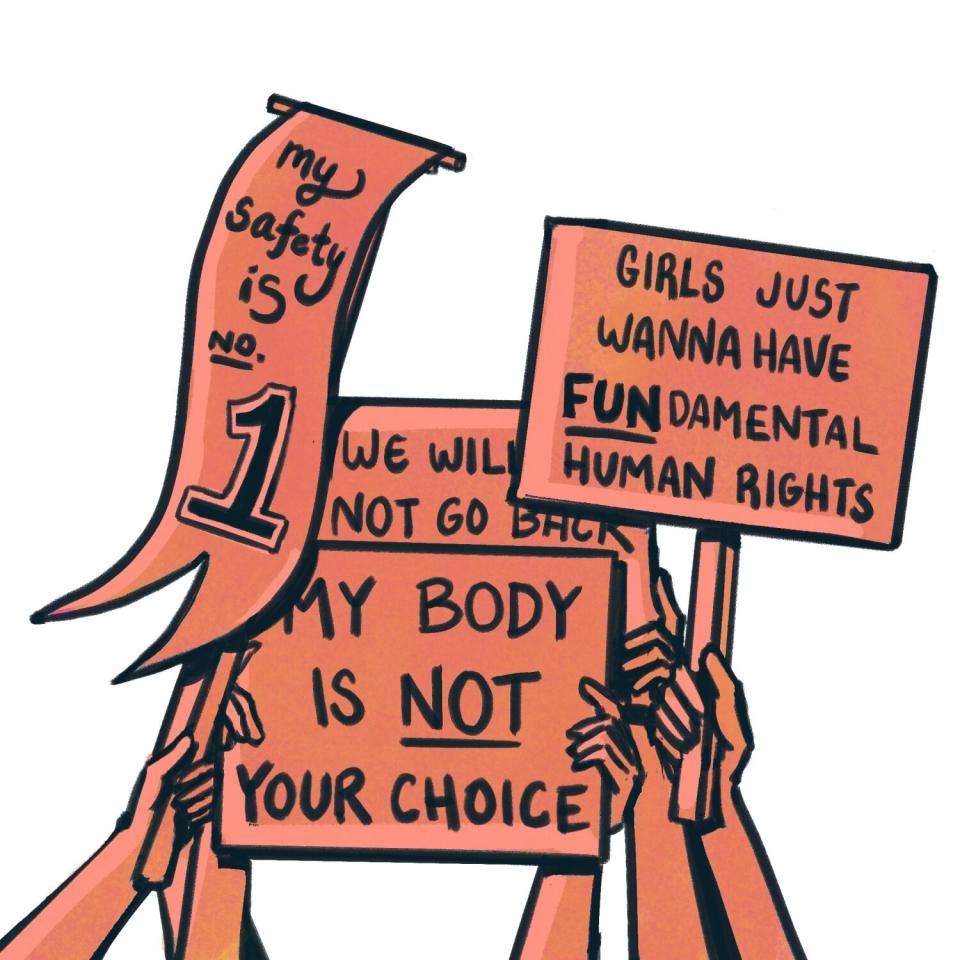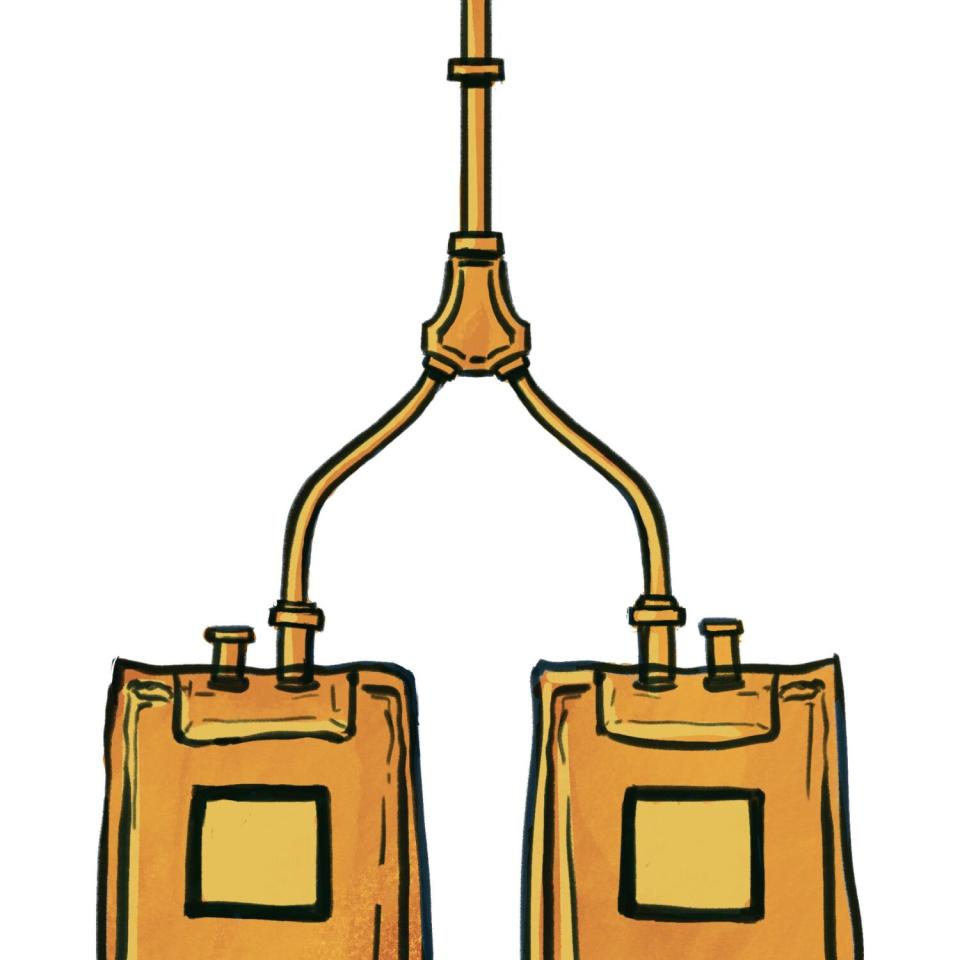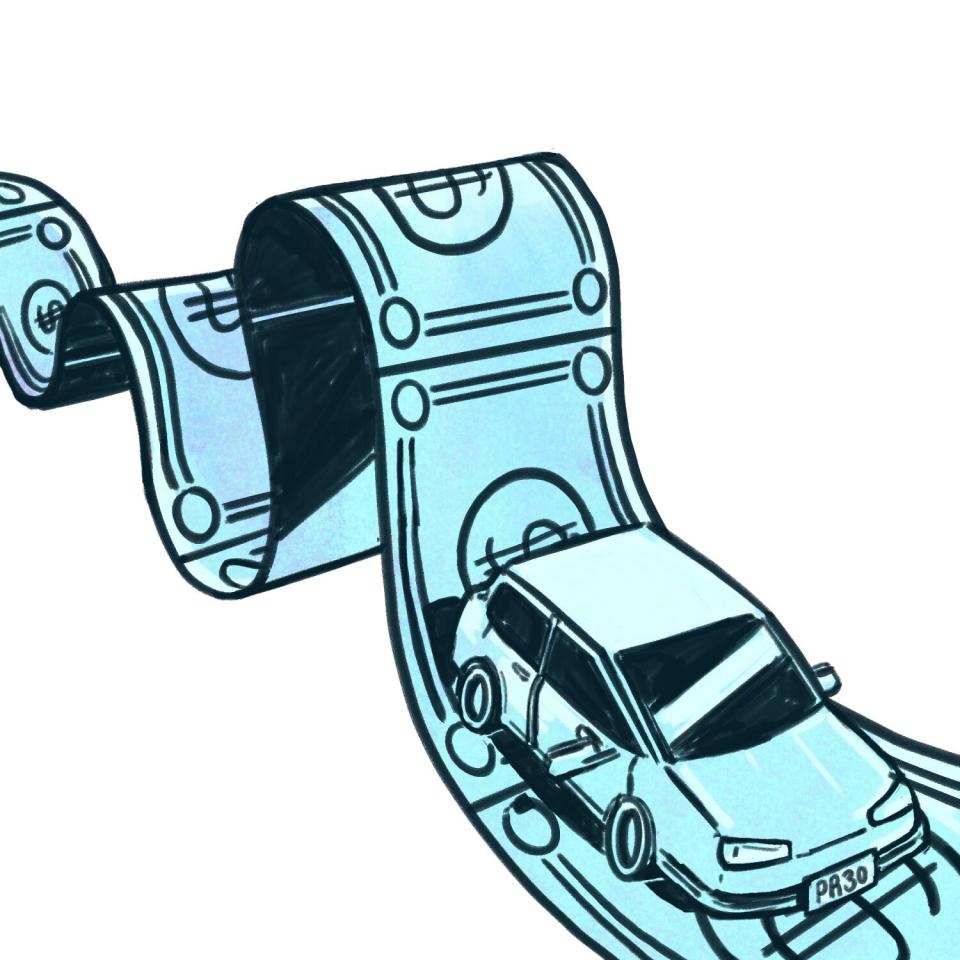What to know about California's November ballot propositions
California voters will decide the fate of seven statewide propositions on Nov. 8, measures placed on the ballot either by politically powerful interest groups or lawmakers that will affect the lives of millions of Californians.
The propositions, like all state ballot measures, require approval by a simple majority of voters for passage. Unless otherwise specified, propositions approved by voters will take effect once the election results are certified in December.
Proposition 1: Abortion

This is a proposed amendment to the California Constitution that will explicitly protect a person’s right to an abortion in the state. The measure was placed on the November ballot by the Democrat-controlled state Legislature in response to the U.S. Supreme Court’s decision to overturn Roe vs. Wade, the landmark 1973 ruling that protected abortion rights nationwide.
If approved by voters, the amendment would codify the state’s already robust reproductive rights, which grant anyone of reproductive age “the fundamental right to choose to bear a child or to choose and to obtain an abortion.” Currently, those rights in California were established by statutory law and by court ruling.
Senate President Pro Tem Toni Atkins (D-San Diego) said she authored the constitutional amendment, which required a two-thirds vote in both the Assembly and Senate to be placed on the ballot, because of the sustained attacks on abortion rights nationwide.
Proposition 26 and 27: Sports wagering

Proposition 26 would legalize in-person sports betting on tribal lands and at four horse-racing tracks. The racetracks would pay a 10% tax on sports-wagering profits, a portion of which would be used for legal enforcement and problem-gambling programs. Along with gambling on sports, the tribes also would be allowed to offer roulette, as well as craps and other dice games, if permitted by individual tribal gambling agreements with the state. Betting on high school sports and California college teams would be banned.
Proposition 27 would allow licensed tribes and gambling companies, including FanDuel and DraftKings, to offer online sports betting — including on cellphones and other mobile devices. The gambling companies must be affiliated with a tribe. Both the tribes and gambling companies must pay 10% of the sports bets made every month to the state, minus expenses.
Along with covering state regulatory costs, most of the money raised would be used to address homelessness and to help people with gambling addiction problems. A smaller portion, 15%, would be given to tribes not involved in online sports betting.
California's major gaming tribes support Proposition 26, and fear that competition created under Proposition 27 would cut into a major part of California's gambling market at tribal casinos. Supporters and opponents of the two measures already have poured hundreds of millions of dollars into the campaigns.
Proposition 28: Arts funding at public schools

This ballot measure would provide additional funding for arts and music education in all preschool and K-12 public schools, including charter schools. The funding would come from the state's general fund and equal 1% of required state and local funding for public schools. Schools serving more economically disadvantaged students would receive a greater proportion of funding. Most of the funding would be used to hire art teachers and staff.
The Legislative Analyst's Office estimates that if Proposition 28 is passed, state spending would increase by roughly $1 billion annually. School boards would be required to certify each year that the money was used to pay for arts programs, and post that information online.
Proposition 29: Kidney dialysis

This is the third time in four years that California voters are being asked to place greater restrictions on kidney dialysis centers in the state, with the previous attempts in 2018 and 2020 both failing. If approved, dialysis clinics would be required to have a physician, nurse practitioner or physician assistant on premises during treatment hours.
Along with the two previous ballot measures, the one in November was supported by Service Employees International Union-United Healthcare Workers West, a Bay Area union that represents healthcare workers in California.
About 600 dialysis clinics in California serve about 80,000 patients per month, according to a state legislative analysis. To address the patients’ needs, clinics often operate longer hours each day and are open for six days a week. Two private for-profit dialysis companies, DaVita Inc. and Fresenius Medical Care, own or run about three-quarters of the licensed clinics in California and oppose the proposition.
Supporters and opponents already have raised roughly $40 million for their campaigns, state campaign finance records show.
Proposition 30: Wealth tax for zero-emission vehicle programs

Under this measure, wealthy Californians would pay an additional 1.75% in personal income taxes on annual earnings above $2 million starting in 2023. The revenue collected from this additional tax would support zero-emission vehicle programs and wildfire response and prevention efforts.
Eighty percent of the revenue would be used to encourage the purchase of new zero-emissions vehicles and to install and operate charges stations for zero-emissions vehicles. The money would be used to help individuals, businesses and governments pay for new zero-emission vehicles. Half of the money would be set aside for those in low-income communities or who live in heavily polluted areas.
The remainder of the money raised would go toward wildfire protection and prevention.
The ride-sharing company Lyft is the major supporter of the proposition, spending in excess of $15 million thus far to convince voters to pass the measure. While the measure has support among some environmental groups and has been endorsed by the California Democratic Party, Gov. Gavin Newsom opposes the measure.
He said the proposition would make California's already volatile revenue stream even more unstable by tying up much state funding. Newsom called the measure a "cynical scheme" by Lyft to meet a state mandate for ride hailing companies to convert most of their fleets to electric vehicles by 2030.
Proposition 31: Flavored tobacco

If approved, Proposition 31 would ban the sale of most flavored tobacco products in stores and in vending machines. The ban was passed by the California Legislature and signed into law by Gov. Gavin Newsom in 2020 but in 2021 was placed on hold after a referendum by the tobacco industry challenging the law qualified for the November 2022 ballot.
When a referendum challenging a state law qualifies for the ballot, the law is suspended until voters can decide whether it should go into effect.
Major tobacco companies already have poured in tens of millions of dollars to persuade Californians to vote against Proposition 31 and allow the sale of flavored tobacco products to continue.
While considering the ban, state legislators cited a 2018 study by the Centers for Disease Control and Prevention that found that 67% of high school students and 49% of middle school students who used tobacco products in the prior 30 days reported using a flavored tobacco product during that time.
The new law came in response to a surge in teen use of flavored tobacco, including electronic cigarettes and other products with flavors including menthol, apple, cotton candy and gummy bears.
This story originally appeared in Los Angeles Times.

